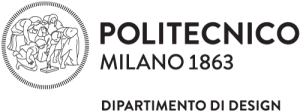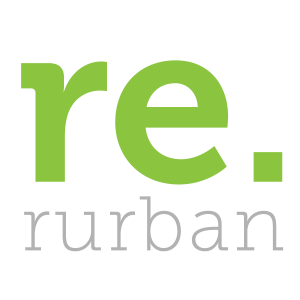Next Design Innovation
About Next Design Innovation
Next Design Innovation is a project developed by Regione Lombardia together with the Department of Design of Politecnico di Milano and coordinated by his makerspace Polifactory.
The project aims to support the pre-incubation of young talents able to materialize innovative product-service system combining design and embedded technologies and experimenting new analog/digital fabrication processes.
Next Design Innovation offers to young designers and innovators - Under 35 people who can work individually or in team - the opportunity to conduct firsthand a full "from idea to market" process, a whole process which range from the concept generation to prototyping and exhibition activities.
Next Design Innovation is based on an original process:
- The publication of an Open Call for Ideas and Talents;
- Under 35 designers and innovators – individually or in team – can submit their idea related to an innovative product-service system;
- Fifteen ideas are selected following the evaluation model published on the Open Call;
- The selected ideas are pre-incubated in Polifactory and then prototyped thanks to the collaboration between the designers and the makerspace.
- The prototypes are presented to the Milan Design Week 2016 within a specific exhibition.
Open call and selected ideas
November 26, 2015 the open call NEXT DESIGN INNOVATION has been published on the Official Bulletin of Region Lombardia. The Open Call for Ideas and Talents remained open from 27th November 2015 to 10th January 2016. During this period 39 applications have been received. At the end of the evaluation process, 15 proposals have been selected (list of selected applicants is available at this link - only in italian).
Promoters
Regione Lombardia - Department of Economic Development
Regione Lombardia aims to create and sustain an open process involving all the potential stakeholders of his creative ecosystem (individuals and public institutions, associations, business and professional, schools, universities, research institutions, businesses, etc.) in order to:
- support creativity and the creative professions having a particular focus on the young people and their education/training;
- introduce young creative professionals to businesses;
- developing initiatives that allow the business world of fashion to meet the challenges of digitization and communication, even in a logic of aggregation and networking between actors in these domains;intercept, acting in the public-private system level, the design world turmoil to promote projects aimed at the development of the territories;
- promote the image of Lombardy as a global center of excellence in design and fashion, indirectly favoring the tourist and commercial attractiveness.
Politecnico di Milano – Department of Design
The Department of Design was founded in 2013 reorganizing the previous INDACO Department. It is part of the Design System of Politecnico di Milano and is one of leading university in the field of design, worldwide. The Department of Design actively promotes the role of design in the academic world (in terms of scientific, educational and cultural activities) through the constant development of relations and collaboration with all the actors involved in the Design System, both in the context of Milan and Lombardia, both at national and international level.
Since 2012, in the Department of Design there is a research group that explores the relationship between design and the change of production models, having a particular focus on micro and self-production, making and more generally to independent innovation. His makerspace Polifactory, created in march 2015, is actively involved in the project Next Design Innovation. This fact demonstrates the interest of the Department for the actions that enable the evolution of design and designers’ role in our society.
Next Design Innovation Europe
A key aspect of Next Design Innovation is to find immediately an European character. The basic idea is to develop international partnerships with other European regions - the motors of Europe – concerning the themes of design-driven innovation. The goal is to replicate Next Design Innovation initiative in other European context creating a continental platform focused on design innovation and strongly oriented to hands-on experimentation and new entrepreneurship.
In early 2016, Generalitat de Catalunya has signed an agreement with Lombardia in order to take part to the first edition of Next Design Innovation. By collaborating with Elisava, the prestigious School of Design in Barcelona, six projects have been selected which and were exhibited at the upcoming Milan Design Week 2016 together with 15 prototypes created by the Italian designers.
Partners
Re.Rurban Studio is a design and communication studio from Milan. It was born as people association, in 2009, when it was working on urban regeneration and renewal projects, especially with old farmhouses in the city area. Those experiences permit the studio to improve skills and build the team, integrated between design and communication services. Now Re.rurban includes 3 professional members and others contributors who work for companies, social enterprises and organizations and offer consulting in design and communication strategies, services, products and events. Re.Rurban Studio also develops self-produced projects: public events as the street quality food festival Eat Urban, or design events as Zona Santambrogio, the design district for Milan Design Week.
Credits - Next Design Innovation 2016 edition
Councillor for Economic Development, Regione Lombardia
Mauro Parolini
Scientific coordination
Stefano Maffei
with the support of
Politecnico Milano - Dipartimento di Design
Silvia Piardi (Head of Design Department)
Project management
Massimo Bianchini
Regione Lombardia -Technical Representatives
Pietro Lenna, Giovanni D’Addario, Morena Cambri, Luca Legnani
R&D and prototyping
Patrizia Bolzan, Nicola Corna, Diego Quetti, Marcello Pirovano
Designers
Carola Desi Manzoni with Chiara Gattuso, Ilaria Ventrucci (All Another Food); Ilaria Vitali (Intune); Camilla Mattaboni, Margarita Medvedeva (Secret Touch); Matilde Arduini, Giulia Tognali, Simone Peracchi (Metrica); Silvio Combi (Sensible Light Picture for Design); Shyam Deepak Gopal, Felipe Hernandez Villa-Roel (Hexagro); Fabia Ciccone, Samuele Miatello with Marco Piscopo (Re-home); Luca Venturelli (Lam.ta); Gabriella Mastrangelo with Artemis Papageorgiu (Playstools); Ekaterina Shchetina (IO); Lorenzo Fort with Deborah Fumolo, Lucia Esposito (Konscio); Wilson Emmanuelle Quispe, Nicola Bonriposi, Giacomo Bianchini with Chai Botta (Bol); Gabriele Basei (Polifemo); Maria Novozhilova (A Democratic Table); Lucia Frattini, Marta Andreoni, Paolo Marasi (Phono)
in collaboration with
Federico Izzo, Francesco Tobia Liuzzi, Seiedmilad Mohammadi, Giorgio Nuzzo, Francesco Truzzi
Art Direction
Marcello Pirovano, Massimo Bianchini, Francesco Leoni
Illustrations
Marcello Pirovano
Prototypes pictures
Federico Villa
Social media and editing
Valentina Croci
PR and press office
Fiammetta Gamboni
Acknowledgments
Silvia Piardi (Head of Department of Design - Politecnico di Milano), Rosa Toninelli (Administrative manager of Department of Design), Erica Alberti, Ester Bertolino, Alessia Cappellini, Cristina Giancola, Luca Cosmai, Lab Immagine, Lab Modelli e Prototipi, Lab Moda, Paolo Bolzan, Lorenza Lampugnani, Luca Paleari
Print
Il Melograno Cooperativa Sociale
Publisher
Gruppo Libraccio
Thematic categories
Thanks to its Open Call, Next Design Innovation proposes some design issues that may relate to one or more productive sectors, one or more product categories, one or more 'challenges'.
The 2015/2016 edition of Next Design Innovation offers five thematic categories:
- New household tools and appliances: hand tools and electronic tools for the individual and collective preparation of food and drinks;
- Interactive furniture and lighting: furniture, home accessories and lighting systems using sensors, actuators or have a connection with other electronic devices and sensors (adopting an IoT logic);
- Smart wearable and fashion: fabrics, garments, and fashion accessories for work, sport and leisure that incorporate various kind of sensors or have a connection with other electronic devices and sensors (adopting an IoT logic);
- New tools and devices for smart cities: objects, tools and electric/electronic devices to be individually or collectively used to improve energy efficiency, environmental sustainability and quality of life for the citizens.
- Smart vehicles for smart mobility: objects, tools, equipment and means of transport that facilitate sustainable mobility (low cost and low environmental impact).


